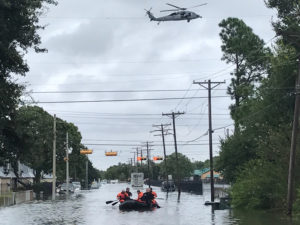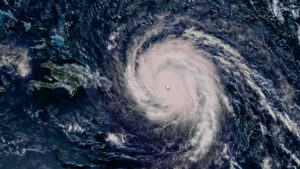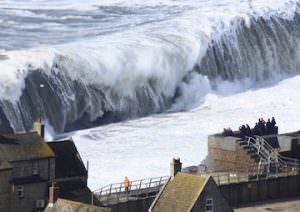Familiar Fish Find Northern Seas Too Warm for Comfort
Fish accustomed to shallow northern waters will search in vain for cooler depths as climate change warms the seas where they thrive.
By Tim Radford, Climate News Network

As British as a London bus — but traditional fish and chips are under threat. (Garry Knight from London via Wikimedia Commons)
This Creative Commons-licensed piece first appeared at Climate News Network.
LONDON — Some of Northern Europe’s favourite suppers may be about to swim off the menu altogether. Global warming could change the future catch, according to new research.
British scientists report in the journal Nature Climate Change that popular species such as haddock, lemon sole and plaice could become less common as the climate changes and the North Sea warms.
The North Sea is relatively shallow — during the height of the Ice Age, much of the sea bed was dry land — which means that fish that would otherwise find deeper waters to keep cool have nowhere to go.
The North Atlantic is warming fast. The mean annual North Sea surface temperatures have increased by 1.3°C in the past 30 years. This is four times faster than the global average. But fish evolved to make a living in the temperatures that suit them best, and the evidence is that the North Sea is increasingly host to species that were once characteristic of the Mediterranean.
Changing abundance
Fishing is big business: landings in 2007 in the region reached $1.2 billion, and accordingly the ecology of the North Sea has been intensively monitored. Cold-adapted landings have halved in the last 30 years, but landings of warm-adapted species have increased 2.5 times. With a baseline of very detailed data from the past, the researchers were able to use computer models to build up a picture of things to come in northern waters.
And the result is this: the demersal or bottom-feeding fish that were the basis of fish-and-chip suppers from Cornwall in the UK to northern Norway are likely to dwindle over the next 50 years. Many of them cannot move north to get away from the heat, because there is no suitable habitat, and they can’t go deeper, because there isn’t any depth. So the abundance of species will change with time.
“Our study suggests that we will see proportionately less of some of the species we eat most of as they struggle to cope with warming conditions in the North Sea,” said Louise Rutterford of Exeter University, the first author.
Squeezed out
“We provide new insight into how important local depths and associated habitats are to these commercial species. It’s something that is not always captured in existing models that predict future fish distributions.”
Other studies have found that fish in many regions are changing to new latitudes as climates change in response to greenhouse gas emissions from fossil fuel combustion. The same man-made global warming has brought a greater number of sardines, for instance, to northern waters, and in the US fishermen have had to sail ever further north to pursue the black bass. There has even been a warning that the retreat of the Arctic ice means that Atlantic halibut could actually migrate into the North Pacific.
So the latest message is confirmation of an increasingly familiar finding. “We will see a real changing of the guard in the next few decades,” said Steve Simpson, a marine biologist at Exeter, and another of the authors.
“Our models predict cold water species will be squeezed out with warmer water fish likely to take their place. For sustainable UK fisheries, we need to move from haddock and chips and look to southern Europe for our gastronomic inspiration.”
Your support matters…Independent journalism is under threat and overshadowed by heavily funded mainstream media.
You can help level the playing field. Become a member.
Your tax-deductible contribution keeps us digging beneath the headlines to give you thought-provoking, investigative reporting and analysis that unearths what's really happening- without compromise.
Give today to support our courageous, independent journalists.






You need to be a supporter to comment.
There are currently no responses to this article.
Be the first to respond.